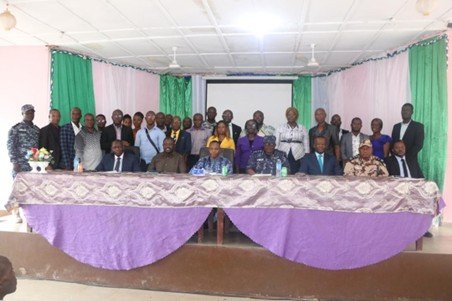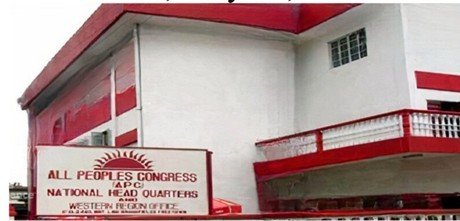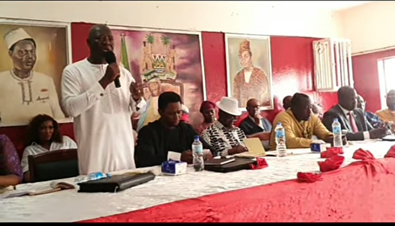The Sierra Leone Police (SLP) has organized a three-day training aimed at enhancing the capacity of investigators on the New Criminal Procedure Act. The event, held at the Police Wives Association Hall at Kingtom, brought together senior officials, trainers, and investigators from across the country.

In his remarks, the Deputy Inspector General of Police – Sahr Yomba Senesi expressed delight at the training initiative. He emphasized that the administration of the SLP, under the leadership of Inspector General William Fayia Sellu, believes in building the knowledge and skills of its personnel, particularly in how they handle the public. He noted that the main goal of the training is to empower investigators to become more skillful in handling criminal matters. He concluded by expressing hope that the knowledge gained will be effectively applied in the field.
Chief Minister Dr. David Moinina Sengeh, who also addressed participants, reiterated his commitment to the principle of radical inclusion. He stressed that justice should be timely and not delayed, reminding participants that “justice delayed is justice denied.” He noted that police officers play a frontline role in the justice system and must therefore work to uphold justice and maintain peace in Sierra Leone.
Highlighting the international recognition of the SLP, he referenced the 2025 UN Policing Award won by a Sierra Leone police officer as proof of the force’s progress. He added that the New Criminal Procedure Act will strengthen the justice system, urging investigators to build trust with the public so that citizens do not resort to taking the law into their own hands.
Assistant Inspector General (AIG) Andrew M. Kamara, Director of Training, described the event as a high-profile training that attracted key dignitaries. He said that during this transitional phase of the SLP – transforming from a force to a service— such initiatives are vital for Criminal Investigations Department (CID) personnel. He emphasized that “knowledge is power” and must be put into practice to improve investigative outcomes.
The lead facilitator, former Chief Justice – Nicholas Brown Marke, said it was a privilege to engage with police investigators. He reminded participants that fairness must be applied equally to complainants and suspects in criminal cases. He underscored the importance of timely investigations, noting that “the success of the prosecutor lies in the quality of the investigation.” According to him, the new Act represents “the beginning of a new road,” replacing the outdated legislation.
The Head of CID, ACP Alieu Jalloh, expressed excitement about the training, noting that it would help strengthen personnel’s ability to conduct quality criminal investigations. He added that the knowledge gained would reposition CID officers in line with the requirements of the New Criminal Procedure Act.
The Attorney-General and Minister of Justice – Hon. Alpha Sesay thanked the leadership of the SLP for organising the training, stressing that we should see justice as a service. He revealed plans to put together an essential package for justice delivery. The AG noted, that with the new Act, everybody within the criminal justice system will be held accountable.
Similar sentiments were shared by the Director of Public Prosecutions- Mr. Osman Kanu; emphasizing that the success of prosecutions lie in the quality of investigations.
Several participants shared their experiences. Detective Inspector Isatu Deen Cole from CID Headquarters said the training was important to her, especially given the challenges investigators face in dealing with court delays, witness statements, and equipment shortages that sometimes lead to the leakage of sensitive information. She said she had learned the importance of avoiding unnecessary delays in court proceedings and emphasized that teamwork between the police, prosecutors, and the state is crucial for accurate investigations.
Detective Inspector Maurice Amara Sellu, from Congo Cross Division also described the training as timely. He noted that he now better understands the negative effects of delayed justice, pointing out that investigators are expected to handle serious crimes such as burglary, housebreaking, wounding with intent, and murder within 3 to 10 days. He pledged to apply the knowledge gained to ensure justice is delivered promptly.
The three-day training ended with a group photograph of participants and dignitaries.




